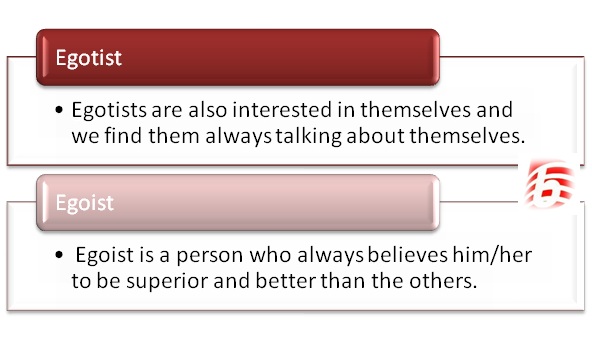Egoist vs Egotist
Many people confuse the terms “egoist” and “egotist,” believing they have similar meanings. While they do sound alike, these terms carry distinct definitions. An egoist is someone who thinks highly of themselves, while an egotist is someone who is primarily interested in themselves and enjoys talking about themselves. Both words are associated with egotism, a psychological condition that leads a person to hold high and mighty views of themselves. Let’s examine these terms in greater detail.
What does Egoist mean?
An egoist is a person who believes they are superior and better than others. It can be difficult to identify someone as an egoist because they may not openly discuss their high self-esteem. These individuals constantly think they are more superior and finer than others, but they do not boast about themselves. Another characteristic of an egoist is that they will try to achieve their goals regardless of any obstacles they may face. They plan their actions secretly and can be considered selfish and cunning because they do not reveal their true nature.
What does Egotist mean?
Egotists, like egoists, are also primarily focused on themselves and often talk about themselves. They try to make every conversation revolve around them and will use any means necessary to get what they want, whether legal or illegal. Egotists openly discuss their self-importance and do not consider the consequences of their actions before performing them. While they are self-centered, they may not be as selfish as egoists.
Key Takeaways
- Egotists openly discuss their self-importance, while egoists believe they are superior without boasting about it.
- Egoists are more secretive and cunning than egotists, who are considered boastful.
- Egoists are typically more selfish than egotists, who may be self-centered but not necessarily selfish.
Both egoism and egotism are psychological conditions related to an individual’s perception of themselves. Understanding the differences between these two terms can help in identifying and addressing these conditions in society.
